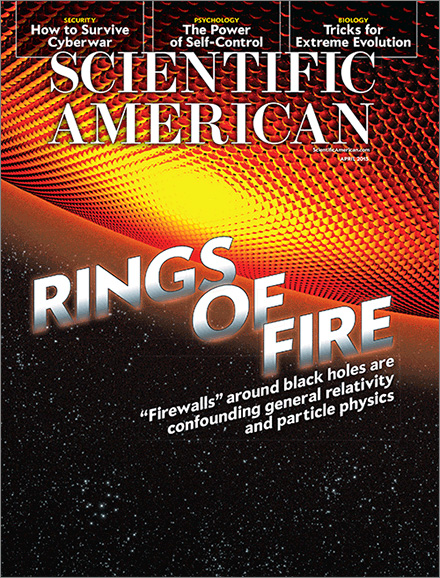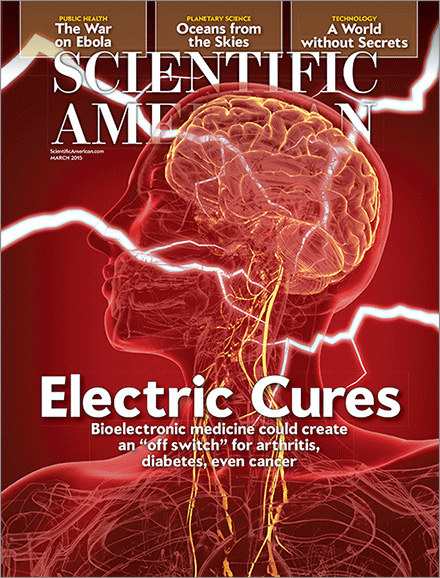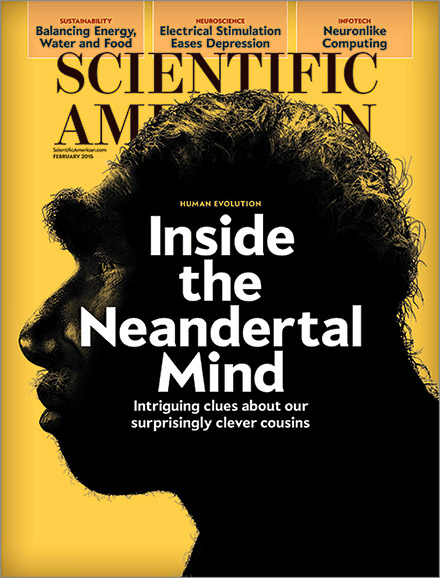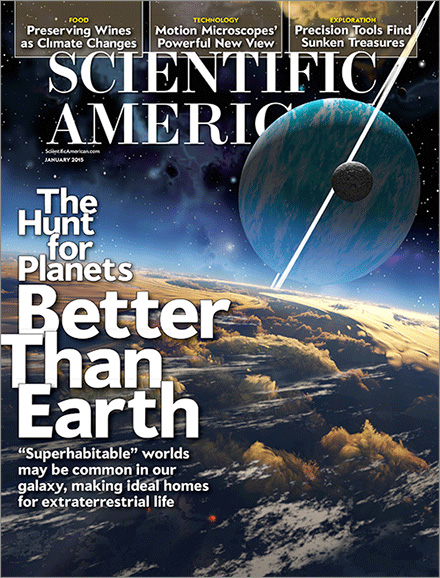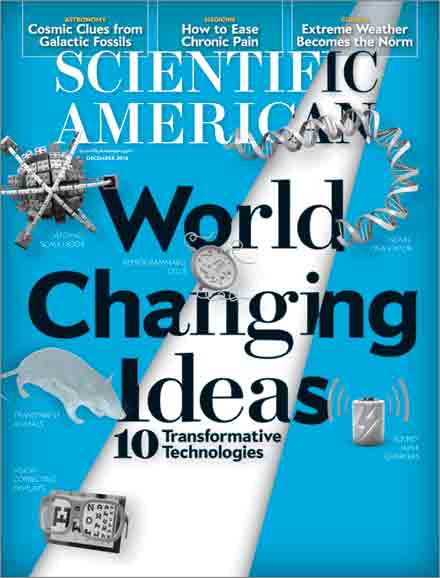April 1, 2015
What do we mean by “natural”?
IN 1980 I SUBJECTED MYSELF to a weeklong cleansing diet of water, cayenne pepper, lemon and honey, topped off with a 150-mile bicycle ride that left me puking on the side of the road. Neither this nor any of the other fad diets I tried in my bike-racing days to enhance performance seemed to work as well as the “see-food” diet one of my fellow cyclists was on: you see it, you eat it.
In its essence, the see-food diet was the first so-called Paleo diet, not today’s popular fad, premised on the false idea that there is a single set of natural foods—and a correct ratio of them—that our Paleolithic ancestors ate. Anthropologists have documented a wide variety of foods consumed by traditional peoples, from the Masai diet of mostly meat, milk and blood to New Guineans’ fare of yams, taro and sago. As for food ratios, according to a 2000 study entitled “Plant-Animal Subsistence Ratios and Macronutrient Energy Estimations in Worldwide Hunter-Gatherer Diets,” published in the American Journal of Clinical Nutrition, the range for carbohydrates is 22 to 40 percent, for protein 19 to 56 percent, and for fat 23 to 58 percent. (continue reading…)
March 1, 2015
Just because we don’t know everything
doesn’t mean we know nothing
WHAT DO TOBACCO, food additives, chemical flame retardants and carbon emissions all have in common? The industries associated with them and their ill effects have been remarkably consistent and disturbingly effective at planting doubt in the mind of the public in the teeth of scientific evidence. Call it pseudoskepticism.
It began with the tobacco industry when scientific evidence began to mount that cigarettes cause lung cancer. A 1969 memo included this statement from an executive at the Brown & Williamson tobacco company: “Doubt is our product since it is the best means of competing with the ‘body of fact’ that exists in the minds of the general public.” In one example among many of how to create doubt, a Philip Morris tobacco executive told a congressional committee: “Anything can be considered harmful. Applesauce is harmful if you get too much of it.”
The tobacco model was subsequently mimicked by other industries. As Peter Sparber, a veteran tobacco lobbyist said, “If you can ‘do tobacco,’ you can do just about anything in public relations.” It was as if they were all working from the same playbook, employing such tactics as: deny the problem, minimize the problem, call for more evidence, shift the blame, cherry-pick the data, shoot the messenger, attack alternatives, hire industry friendly scientists, create front groups. (continue reading…)
February 1, 2015
How science can inform ethics
Why is it wrong to enslave or torture other humans, or take their property, or discriminate against them? That these actions are wrong, almost no one disputes. But why are they wrong?
For an answer, most people turn to religion (because God says so), or to philosophy (because rights theory says so), or to political theory (because the social contract says so). In The Moral Arc, published in January, I show how science may also contribute an answer. My moral starting point is the survival and flourishing of sentient beings. By survival, I mean the instinct to live, and by flourishing, I mean having adequate sustenance, safety, shelter, and social relations for physical and mental health. By sentient, I mean emotive, perceptive, sensitive, responsive, conscious, and, especially, having the capacity to feel and to suffer. Instead of using criteria such as tool use, language, reasoning or intelligence, I go deeper into our evolved brains, toward these more basic emotive capacities. There is sound science behind this proposition. (continue reading…)
January 1, 2015
What the living dead can teach us about ancient prejudices
The 2014 premier of The Walking Dead—AMC’s postapocalyptic dystopian television series about zombies—was the most watched cable show in history. There have been a slew of popular zombie films such as Dawn of the Dead, Day of the Dead, Night of the Living Dead, 28 Days Later, I Am Legend and of course the perennial favorite Frankenstein. There is even a neuroscience text on the zombie brain, Do Zombies Dream of Undead Sheep? by Timothy Verstynen and Bradley Voytek (Princeton University Press, 2014), in which the authors consider real disorders that could turn the living into the living dead. Why are we so intrigued by zombies?
Zombies, for one thing, fit into the horror genre in which monstrous creatures—like dangerous predators in our ancestral environment— trigger physiological fight-or-flight reactions such as an increase in heart rate and blood pressure and the release of such stress hormones as cortisol and adrenaline that help us prepare for danger. New environments may contain an element of risk, but we must explore them to find new sources of food and mates. So danger contains an element of both fear and excitement. (continue reading…)
December 3, 2014
Who believes in conspiracy theories—and why
President Barack Obama has been a busy man while in office: he concocted a fake birth certificate to hide his true identity as a foreigner, created “death panels” to determine who would live and who would die under his health care plan, conspired to destroy religious liberty by mandating contraceptives for religious institutions, blew up the Deepwater Horizon offshore drilling rig to garner support for his environmental agenda, masterminded Syrian gas attacks as a pretext to war, orchestrated the shooting of a tsa agent to strengthen that agency’s powers, ordered the Sandy Hook school massacre to push through gun-control legislation, and built concentration camps in which to place Americans who resist.
Do people really believe such conspiracy theories? They do, and in disturbingly high numbers, according to recent empirical research collected by University of Miami political scientists Joseph E. Uscinski and Joseph M. Parent and presented in their 2014 book American Conspiracy Theories (Oxford University Press). About a third of Americans, for example, believe the “birther” conspiracy theory that Obama is a foreigner. About as many believe that 9/11 was an “inside job” by the Bush administration. (continue reading…)
